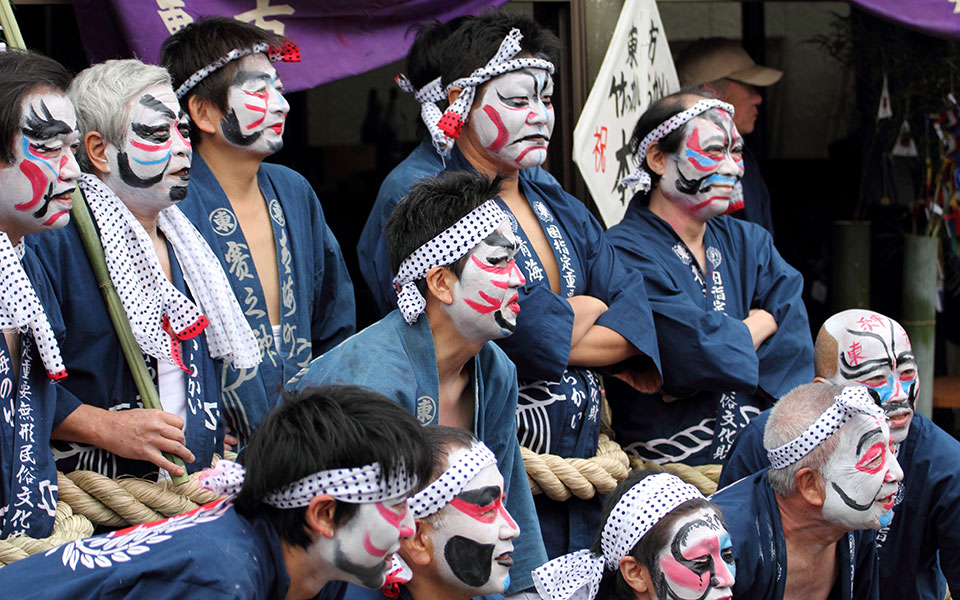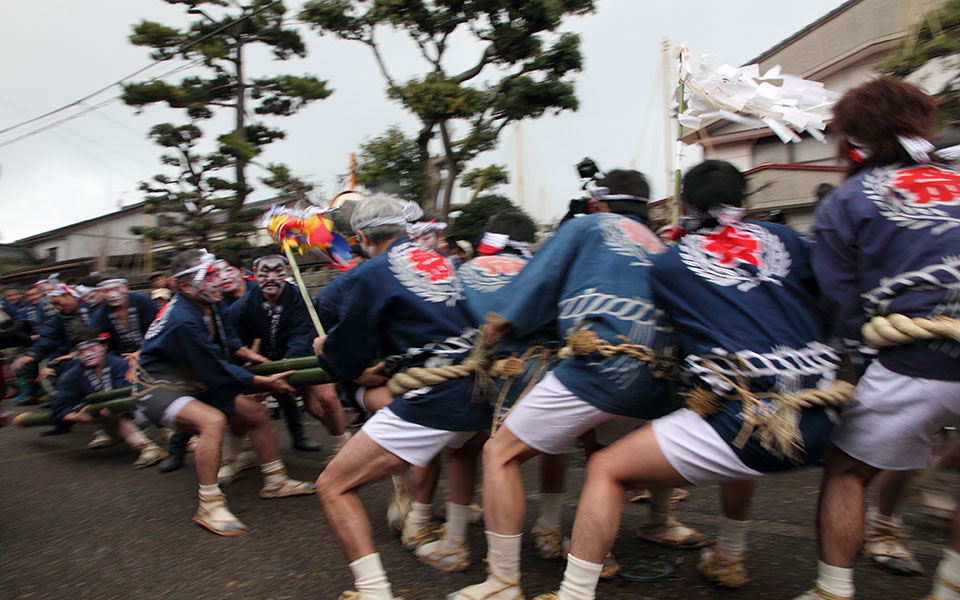Itoigawa Ōmi Take-no-Karakai
The Ōmi Take-no-Karakai (Ōmi Bamboo Fighting Festival) is held every January 15 in front of Ōmi Station in Itoigawa City. The festival first started centuries ago during he Edo period to pray for a bountiful harvest and a good catch of fish.
Two teams of young men representing the western and eastern sides of Ōmi paint their face with brightly colored kumadori makeup and meet in central Ōmi carrying bamboo poles. Holding their bamboo poles together, they engage in a fierce match of tug-of-war. The team which wins is said to be blessed by the Gods with a bountiful harvest of rice and fish. After the fight, the teams move to the nearby beach, where two pyres have been erected. The two teams encircle their fires and chant, warming their bodies and dispelling evil spirits. This rare and unusual New Year’s festival is registered as a National Important Intangible Cultural Property of Japan.
Sai-no-Kami
Sai-no-Kami is the name used in Itoigawa to describe an ancient New Year’s tradition. The Ōmi Take-no-Karakai is one of over 70 such eventsh eld throughout Itoigawa City every year. Sai-no-Kami festivals tend to be unique to each community, but they all feature the Sai-no-Kami pyre, a large bonfire built to burn the New Year’s decorations, old charms and other religious talismans in order to dispel bad fortune. Sai-no-Kami is also the name of a Japanese kami (God) who is said to preside over the New Year’s sason. The Ōmi Take-no-Karakai is held each year in honor of this kami.
Learn more about Sai-no-Kami here.
Schedule
Every January 15th, around 12:30 – 15:00
| January 15th | |
|---|---|
| Around 12:30pm | Take-no-Karakai Bamboo fighting |
| Around 15:30pm | Burning of the Sai-no-Kami Pyre (Nearby Ōmi Beach) |
| Address | In front of Ōmi Station |
|---|---|
| Contact Info | E-mail: itoigawa-kanko@ae.wakwak.com (Itoigawa City Tourism Association) |
| Parking & Transit Info | Parking available at Municipal Ōmi General Cultural Hall (Kirara Ōmi Hall) and Municipal Ōmi Lifelong Learning Center |





